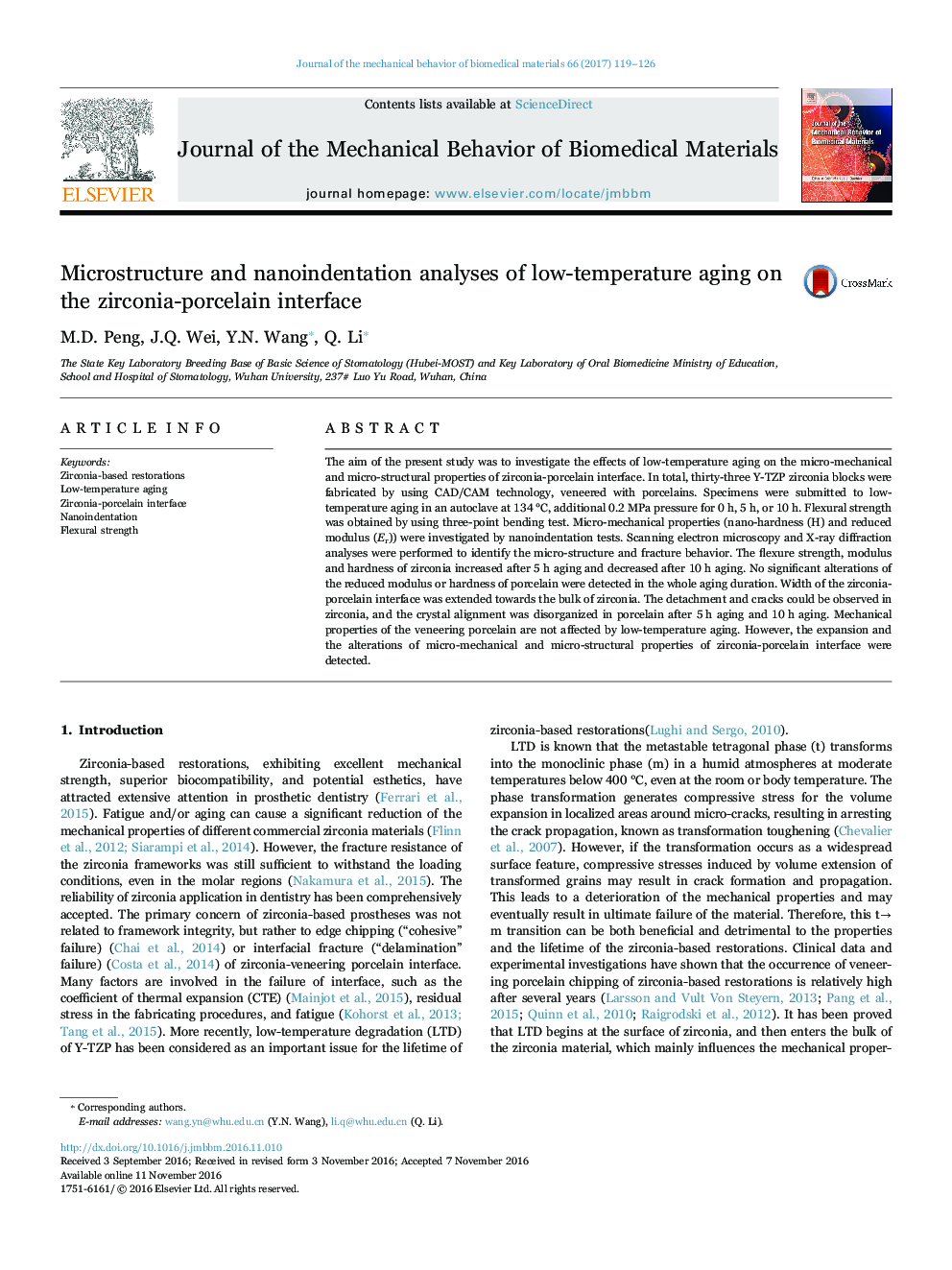| Article ID | Journal | Published Year | Pages | File Type |
|---|---|---|---|---|
| 5020690 | Journal of the Mechanical Behavior of Biomedical Materials | 2017 | 8 Pages |
Abstract
The aim of the present study was to investigate the effects of low-temperature aging on the micro-mechanical and micro-structural properties of zirconia-porcelain interface. In total, thirty-three Y-TZP zirconia blocks were fabricated by using CAD/CAM technology, veneered with porcelains. Specimens were submitted to low-temperature aging in an autoclave at 134 °C, additional 0.2 MPa pressure for 0 h, 5 h, or 10 h. Flexural strength was obtained by using three-point bending test. Micro-mechanical properties (nano-hardness (H) and reduced modulus (Er)) were investigated by nanoindentation tests. Scanning electron microscopy and X-ray diffraction analyses were performed to identify the micro-structure and fracture behavior. The flexure strength, modulus and hardness of zirconia increased after 5 h aging and decreased after 10 h aging. No significant alterations of the reduced modulus or hardness of porcelain were detected in the whole aging duration. Width of the zirconia-porcelain interface was extended towards the bulk of zirconia. The detachment and cracks could be observed in zirconia, and the crystal alignment was disorganized in porcelain after 5 h aging and 10 h aging. Mechanical properties of the veneering porcelain are not affected by low-temperature aging. However, the expansion and the alterations of micro-mechanical and micro-structural properties of zirconia-porcelain interface were detected.
Related Topics
Physical Sciences and Engineering
Engineering
Biomedical Engineering
Authors
M.D. Peng, J.Q. Wei, Y.N. Wang, Q. Li,
